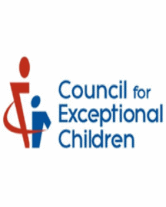Discover a glossary that will help you understand the words used concerning Assessment Accommodations.
Assessment Accommodations Glossary
| Accountability | State assessments are the foundation of many accountability systems, both those directed toward schools and their staff and those directed toward students, such as diplomas and promotion requirements. |
| Alternate Assessment | If the IEP team determines that a child will not participate in a particular state or district-wide assessment of student achievement (or part of such assessment), the IEP must include a statement of why that assessment is not appropriate for the child and how the child will be assessed. [34 CFR §300.347(a)(5)(i)] For students whose IEPs specify that they should not participate in regular assessments, the state must ensure development of guidelines for their participation in alternate assessments and develop and conduct alternate assessments by July I,2000. [20 U.S.C. §1412(a)(17)(A)(i)-(ii) and 34 CFR§300.138(b)] |
| Assessment Accommodation | A change in how a test is presented or how the test taker responds, which may include changes in the presentation format, response format, test setting, timing, or scheduling. This term generally refers to changes that do not significantly alter what the test measures. It results from a student need; it is not intended to give the student an unfair advantage. |
| Assistive Technology Devices | As defined by the Individuals with Disabilities Education Act (IDEA), this term refers to a broad range of devices designed to increase, maintain, or improve the functional capabilities of a child with a disability. [20 U.S.C.§1401(1) and 34 CFR §300.5] Assistive technology devices may include equipment or product systems.IDEA '97 requires that assistive technology devices and services be considered for all students with disabilities in the development of their IEPs. [20 U.S.C.§1414(d)(3)(B)(v) and 34 CFR §300.346(a)(2)(v)] |
| Assistive Technology Service | Students who use assistive technology devices may need a range of services that directly assist that student with the selection, acquisition, or use of the device. Such services may include evaluation; the actual purchase,lease, or acquisition of assistive devices; as well as the services needed to select, design, fit, customize, adapt,maintain, repair, or replace assistive technology devices. Assistive technology services also may include the coordination and use of other therapies, interventions, or services with the assistive technology device, and training that may be needed for the student, the student's family, professionals, employers, or other service providers involved in the student's major life functions. [20U.S.C. §1401(2) and 34 CFR §300.6] |
| High Stakes Assessment | Increasingly, schools are administering state and/or district-wide tests, often referred to as "high stakes tests," that have important consequences for students,staff, or schools. For example, some states require students to pass one or more state assessments in order to be promoted or to receive a high school diploma.Some states base school accreditation on test results. |
| Individuals with Disabilities Education Act( IDEA) | In 1997, IDEA was reauthorized (P.L. 105-17). The IDEA Amendments of 1997 (IDEA '97) require states receiving IDEA funds to ensure that a free appropriate public education is made available to children with disabilities in mandatory age ranges in the least restrictive environment. One of the major emphases in the reauthorization of IDEA is that students with disabilities must have access to the general curriculum, that is, the same curriculum as for nondisabled students and be held to challenging performance standards. Thus, the provisions in IDEA '97 regarding the participation of students with disabilities in general state and district-wide assessment programs, with appropriate accommodations and modifications in administration, where necessary, promote these important statutory purposes. [20 U.S.C.§1412(a)(17)(A) and 34 CFR §300.138(a)] |
| Large-scale Assessment | Many states and districts use large-scale, standards-based assessments for all students in public schools. Large-scale assessments are used to show how students are performing against state standards or national norms, and to hold school districts accountable for student performance. Assessments typically vary across states. Large-scale general assessments typically measure knowledge in broad content areas, rather than specific skills usually represented by IEP goals. |
| Modification | The terms assessment accommodation or assessment accommodations and modifications are used to refer to a change in how a test is presented or how the test taker responds. These changes do not change the content of what is being measured.Although technically, the term accommodation often is used to describe a change in how the test taker responds and the term modification is used to describe a change in how the test is presented, CEC has chosen not to make that distinction. |
Excerpted from Assessment Accommodations Toolkit.![]()
Types of Assessment Accommodations
Accommodation Objectives
Guiding Principles
Case Studies














